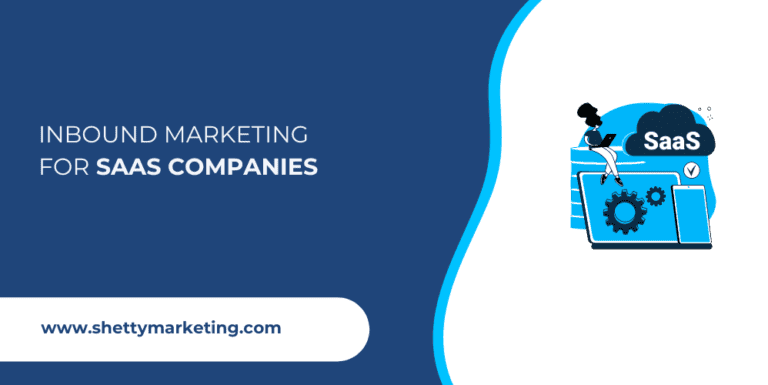[ez-toc]
The modern marketing environment is more complex than ever before.
Marketing managers spend most of their day managing campaigns, creating content, and tracking the performance of their marketing teams. What they need is a myriad of marketing tools to effectively carry out these activities in a short period of time.
In this blog, I’ll offer you a quick rundown of some of the most popular marketing tools that marketing managers should be using for digital marketing.
Free Marketing tools for marketing managers
1.ContentGem
A content manager’s day starts with content curation. If you are having trouble curating content for your social media platforms, Content Gems is the right marketing tool for you!
ContentGems is a content marketing tool that gathers content from RSS feeds of leading websites and filters them primarily based on keywords. You can then search for relevant and informational posts by entering keywords in the “New content search” section and share them on social media sites. Moreover, with paid plans, you can create custom workflows that can be used to automate content curation. This feature pushes freshly generated content to content buckets that you have saved for each profile.
ContentGems’ price begins with a Free plan with limited features. This should be enough for you to curate content for a single social media profile.
2. Buffer
Here is a marketing tool that social media managers would love!
Buffer is quite well-known and is one of the best social media management tools in the market. This marketing tool makes it effortless to quickly share content and conveniently schedule posts on Facebook, Twitter, LinkedIn, Google+, Pinterest, and Instagram. In addition, Buffer also acts as an analytical tool and provides insights with respect to every single post that helps you easily see what marketing strategies are performing and what are not.
Buffer happens to be workable in both free and paid plans. As a free tool, it is confined to one social profile for each platform. For instance, one Facebook account, one LinkedIn account, and so forth. Besides that, you are limited to 10 posts at one time. This is clearly one of the top marketing tools for social media marketing.
3. Twitter Deck
Twitter Deck is a tool that can be used to manage multiple Twitter accounts on one single dashboard with columns. Through these columns, you can track brand mentions, lists, Twitter threads, monitor tweets, and much more. This tool will help B2C companies on Twitter whose primary focus is social listening and monitoring. It is important for them to reply to their customers’ tweets on time. If you are in the same industry you should make use of the new “Teams” feature in the tool. With this feature, your team members can respond to queries pretty quickly.
Personally, my favorite feature of them all is the scheduling option which lets me share GIFS and images. Moreover, it lets me keep track of my scheduled posts on ads.twitter.com and dashboard.twitter.com. I can make changes to it whenever required.
4. Answer Socrates
Answer Socrates is a fantastic tool that managers may use to boost their marketing efforts. It lists down all the frequently asked questions asked by their target marketing.
Socrates generates keywords based on the modifiers that are entered by the user. These modifiers can be in the form of questions, phrases, or words. The inputted information helps to create a list of keywords that best match what was typed in. Most users use it for keyword research, but not many know that it can provide insights you need to understand your target market. Especially, their pain points and objections.
5.LastPass
Password storage becomes essential to marketing managers when they have access to multiple online marketing tools. You can’t use the same ID and password for every marketing software. It’s not a healthy practice.
That’s where LastPass comes in handy. The free version stores usernames and passwords on different sites. Plus, it syncs across devices, making it easy to access them anywhere. The only drawback I personally feel is that we can access the application via one device. Nevertheless, it still lets me save the passwords for unlimited websites which is kind of really cool.
LastPass is compatible with your browser or on your smartphone through a mobile app. After you input your LastPass password, LastPass instantly fills in all of your current user ids and passwords. Therefore, you never have to remember them again. On top of that, if you are having trouble creating a password, it auto-generates passwords for you.
All-in-all, it’s a really good password management tool.
6. Descript
Video marketing is the future of the marketing industry. Videos seem to grab the attention of users on social media platforms and on websites. However, creating a video is not an easy task. Using Descript, you can not only create videos but also record and edit podcasts. I personally use Descript as a screen recorder and a video editor. Its advanced video editing features let me add titles, subtitles, narration, transitions, and much more!
7. Mailchimp
A lot of people have misconceptions about email marketing, but it can be an extremely powerful tool in the hands of a skilled marketer. That’s why email marketing has been around for so long and continues to grow in popularity- because it works!
MailChimp is an email marketing tool and a newsletter provider with a long track record of success. Its drag-and-drop functionality, in-built email marketing templates, email automation, and other features make it simple to use. Using the free version, you can send around 500 emails a day and 2500 emails a month, which is decent for an in-house team. Nonetheless, the rates are affordable if you are looking for an upgrade.
Not the best tool to run multiple email marketing campaigns. I would suggest you go with something like Active Campaign for email marketing automation, which is essential for this day and age.
8. Sniply
If you are putting up a brand, it’s significant to be consistent and omnipresent. Sniply allows you to show your call-to-action on any section of content around the internet. Literally!
You can share content from a third-party site and add a call-action button on their webpage. This means that you have the potential to generate leads out of exceptional content without spending in the production region. The only drawback with this tool is that you can’t share the CTAs on every link. Some of the websites won’t allow it. Nevertheless, still, a pretty useful tool to share content on social media sites when you run out of content.
Sniply is free for up to 500 clicks. Paid plans have extra features.
9. Trello
Here is one of my favorite project management tools out there!
Project management with Trello is simple – just drag-and-drop cards between lists or boards to prioritize them as needed. You also have the ability to attach labels and due dates, add comments, upload files, assign tasks, and more – all without ever leaving the app!
The most important thing about Trello is the simplicity of its interface and ease of use. It’s perfect for organizing small projects with a small team in which all members are constantly working on different parts of the project at the same time.
10. Canva
Canva is a graphic designing tool used to design creatives without owning to dedicate a lot of time and hard work.
As a manager, you perhaps don’t have the time to invest in mastering photo editors, and with Canva you won’t require classes and training.
Canva is totally free, and quite a few functionalities like resizing and GIFs are exclusively offered with a paid registration of $12.95 each month.
Canva is an ideal combo of a user-friendly program and one of the most useful marketing tools with vast potential – the tool provides you with a range of choices to pick from.
This is the first marketing tool that a new company should invest in to make it easier for the management to create content.
Related: Marketing strategy for a new business ( 5 smart marketing strategies)
11. Google Analytics
Google Analytics is a free tool that allows marketers to collect data on their marketing campaigns. This data can be used to analyze the performance of a campaign, identify trends, and make smarter decisions in the future.
The different sections in Google analytics include:
– Audience: This section gives you useful insights into who your visitors are, where they come from, and what they do on your site.
– Acquisition: An acquisition section in Google Analytics is a section that tracks the number of visitors who come to your site from a particular source. Acquisition reports help you identify where your website traffic comes from and how it can be improved.
– Behavior: The behavior section in Google Analytics can tell you what people do on your site, such as whether they watched a video or read an article. You can also see which pages they visited and how much time they spent on each page. This information is valuable because it tells you what content people are most interested in and helps you improve those pages.
– Conversions: The Conversions section in Google Analytics is a statistics tool that provides information about the number of conversions and their value. This data can be used for conversion optimization, for example, by identifying how many people are abandoning the shopping cart before completing a purchase.
– Goals: A goal is a destination on your website that you want to track. It can be a page on your site, an event, or a purchase. The goals section of Google Analytics helps you see how many people reached the destination and what they did when they got there.
Paid digital marketing tools for marketing managers
The tools that will help you to achieve success are not always free. You need to invest in paid marketing tools in marketing.
There are many tools available to choose from and they all have their own features, prices, and benefits. It is worth investing in paid marketing tools in marketing because they will help you to achieve success by speeding up your work and by making it easier for you to do things like creating landing pages, managing campaigns, tracking conversions, etc. Below I’ll list some of the best marketing tools out there.
1. Frase
Frase is one of my favorite content writing and optimization tools. Initially, they started off as an SEO tool, but as everyone’s focus shifted to AI marketing, Frase converted to an AI platform for content generation. Using Frase you can figure out the pain points of your target market. They have a feature called “Conte outline” which lists down the commonly asked questions on various platforms such as Google, Quora, and Reddit.
If you are a content marketer, this is one of the tools you need to upgrade your content marketing game. You can create 1000 words of content for a topic within 10 minutes with the help of their “AI writer” feature. Make sure to use the AI templates built by the Frase community. It’s pretty useful.
For a content marketing solution, the price of this tool is pretty reasonable. They have a basic plan for $45 dollars per month and a team plan which cost 115 dollars a month. Instead of spending 1000s of dollars on writers, you can generate pretty neat content for a few bucks using Frase.
2. Semrush
I am pretty sure you expected to see the tool at some point in the blog. I mean this cloud-based software has everything a marketer needs to work on their marketing projects successfully. Anyway, for the ones who are not aware of this tool, I’ll give you a brief explanation.
Semrush is a powerful and versatile marketing tool that helps in keyword research, competitor analysis, backlink analysis, PPC analysis, rank tracking, and much more. It provides data on the keywords that are driving traffic to your competitors’ websites. The following two features are my personal favorite.
Competitor analysis makes it easy for managers to get quick insights into any given website or domain. Some of the features include: Domain Analysis, Keyword Analysis, Backlinks Analysis Social Media Analysis, etc. Using this information, you can create an action plan and schedule your marketing activities accordingly.
Semrush is not only the best software for an SEO manager but also the most affordable one in the market. Other tools such as Ahrefs, are too expensive when compared to Semrush.
3.Sprout Social
Sprout Social is a social media management platform that helps businesses and agencies manage their social media profiles.
It also provides a complete suite of analytics for the user to monitor their social performance. Other than monitoring your social media accounts, it also has the ability to schedule posts in advance.
This means you don’t have to worry about missing any important posts or updates while you’re on vacation or at work. Another great feature of Sprout Social is the ability to track website visits from your social posts and tweets.
You can see which channels are driving traffic to your website, and which posts are generating the most click-throughs.
Conclusion
To be a successful marketing manager you need the right marketing tools to enhance your marketing efforts. The tools listed above will assist you with your daily tasks and in completing your projects on time. I hope this helps.





